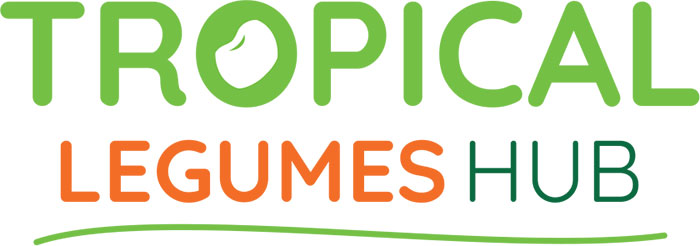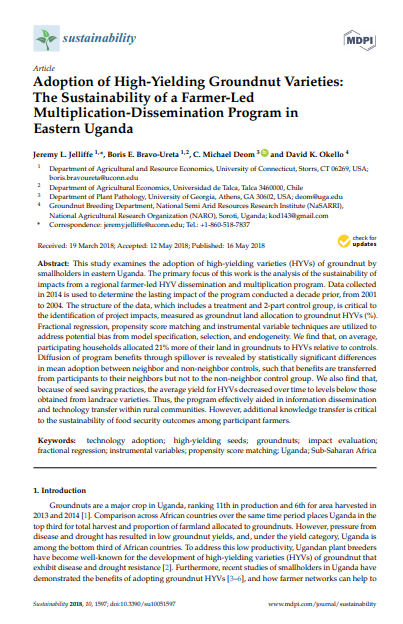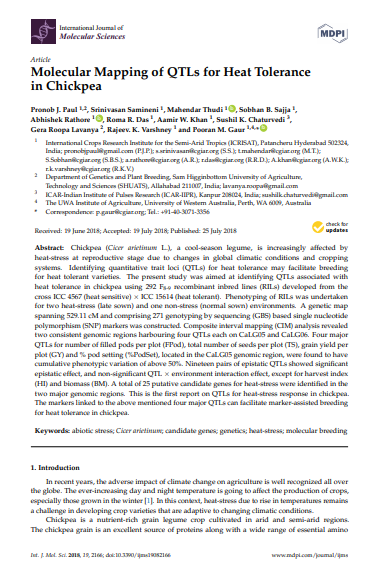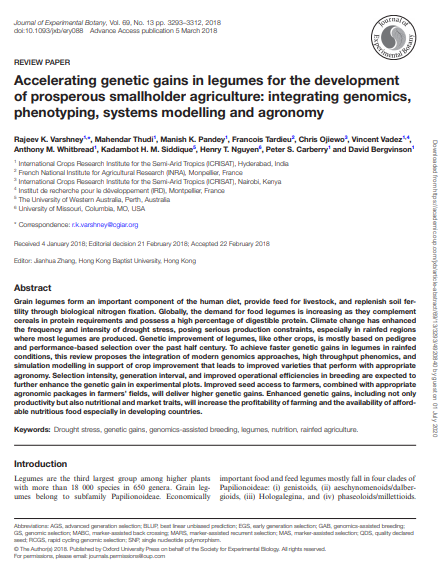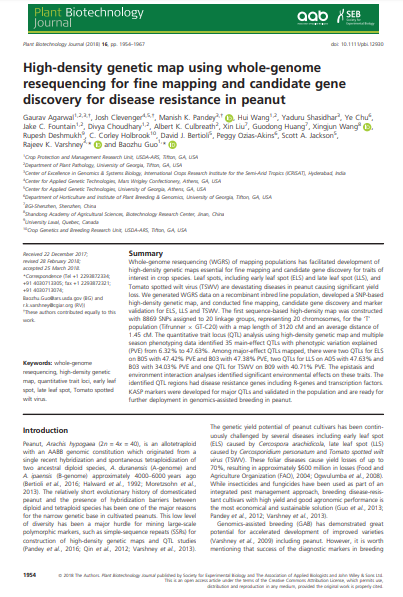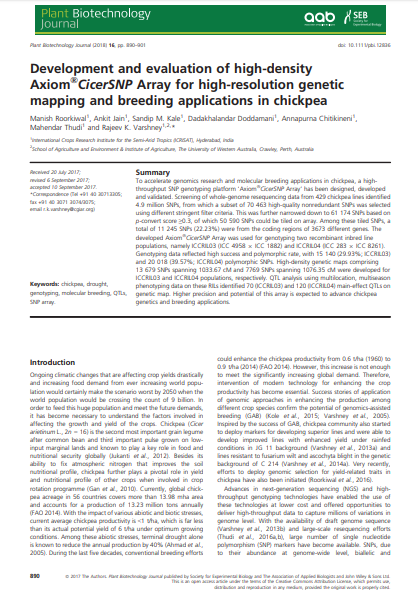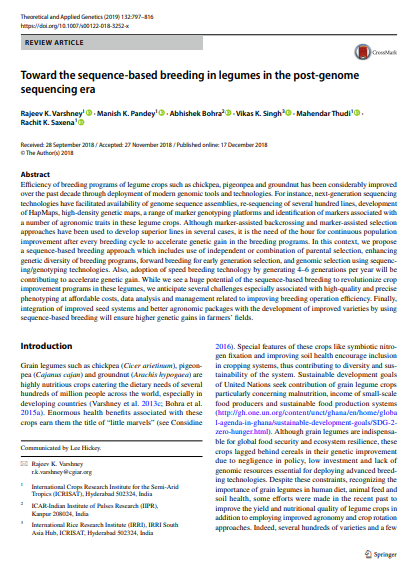Adoption of high-yielding groundnut varieties: the sustainability of a farmer-led multiplication-dissemination program in Eastern Uganda
This study examines the adoption of high-yielding varieties (HYVs) of groundnut by smallholders in eastern Uganda. The primary focus of this work is the analysis of the sustainability of impacts from a regional farmer-led HYV dissemination and multiplication program
Project: TLIII
File type: PDF (672.30 KB)
Groundnut production constraints, farming systems, and farmer-preferred traits in Tanzania
The objective of this study was to document groundnut farmers’ major production constraints, farming systems, and varietal trait preferences in selected agro-ecologies of Tanzania.
Project: TLIII
File type: PDF
Groundnut entered post-genome sequencing era: opportunities and challenges in translating genomic information from genome to field
A review of the optimum genetic and genomic resources that are key for accelerating the process of trait mapping and gene discovery and deploying diagnostic markers in genomics-assisted breeding.
Project: TLIII
File type: PDF
Molecular mapping of QTLs for heat tolerance in chickpea
The present study aimed to identify QTLs associated with heat tolerance in chickpea using 292 F8-9 recombinant inbred lines (RILs) developed from the cross ICC 4567 (heat sensitive) × ICC 15614 (heat tolerant).
Project: TLIII
File type: PDF (2.03 MB)
Capturing genetic variability and selection of traits for heat tolerance in a chickpea recombinant inbred line (RIL) population under field conditions
To assess the genetic variability and identify heat responsive traits in chickpea, a set of 296 F8–9 recombinant inbred lines (RILs) of the cross ICC 4567 (heat sensitive) × ICC 15614 (heat tolerant) was evaluated under field conditions at ICRISAT, Patancheru, India.
Project: TLIII
File type: PDF
Accelerating genetic gains in legumes for the development of prosperous smallholder agriculture: integrating genomics, phenotyping, systems modelling and agronomy
To achieve faster genetic gains in legumes in rainfed conditions, this review proposes the integration of modern genomics approaches, high throughput phenomics, and simulation modelling to support crop improvement that leads to improved varieties that perform with the appropriate agronomy.
Project: TLIII
File type: PDF (1.04 MB)
High-density genetic map using whole-genome resequencing for fine mapping and candidate gene discovery for disease resistance in peanut
This paper evaluates efforts to generate whole-genome resequencing data on a recombinant inbred line population, develop a SNP‐based high‐density genetic map, and conduct fine mapping, candidate gene discovery and marker validation for early leaf spot, late leaf spot, and Tomato spotted wilt virus in peanut.
Project: TLIII
File type: PDF (1.03 MB)
Development and evaluation of high-density SNP array (Axiom®CicerSNP Array) for high resolution genetic mapping and breeding applications in chickpea
Screening of whole-genome resequencing data from 429 chickpea lines using the high throughput SNP genotyping platform ‘Axiom® CicerSNP Array’ identified 4.9 million SNPs, from which a subset of 70,463 high-quality nonredundant SNPs was selected using different stringent filter criteria.
Project: TLIII
File type: PDF (922.47 KB)
Pigeonpea improvement: An amalgam of breeding and genomic research
This paper emphasizes the ongoing genetic improvement in pigeonpea with an amalgam of conventional breeding as well as genomic research.
Project: TLIII
File type: PDF (436.04 KB)
Toward the sequence-based breeding in legumes in the post-genome sequencing era
This this article, the authors propose a sequence-based breeding approach which includes use of independent or combination of parental selection, enhancing genetic diversity of breeding programs, forward breeding for early generation selection, and genomic selection using sequencing/genotyping technologies.
Project: TLIII
File type: PDF (2.23 MB)
